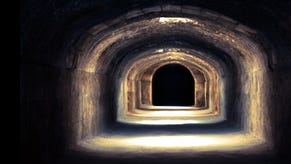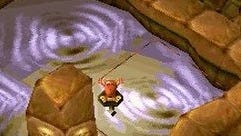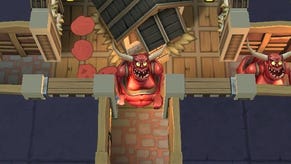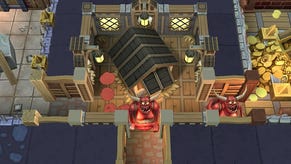Dungeon Keeper review
Throw away the key.
Dungeon Keeper is a hard game to review. That's because any critique of this remake of Bullfrog's 1997 PC hit can't help but slide down the slippery slope towards being a critique of free-to-play gaming in general, and that's when people start banging the table and raising their voices and it all goes a bit Jeremy Kyle.
It is, at least, easy to see why EA revived this beloved cult classic in this fashion. Revisit the original Dungeon Keeper today and be amazed at just how many of its ideas have been reborn in mobile games. It was one of the first "tower defence" games, for example, flipping gaming convention upside down by casting the player as an evil tyrant, crafting the most perfectly evil lair in which to trap and kill do-gooder enemies who enter your hallways looking to save the world.
You did this by using an expanding army of imps to dig out new rooms, which you could then use to house traps, treasure and monster-spawning hatcheries. The more you expanded your labyrinth, the more stuff you discovered. The more stuff you discovered, the more new things you could build. It was a near-perfect feedback loop of routine and invention.
And, credit where it's due, EA's Mythic studio has revived that gameplay style very accurately. The viewpoint is loftier, the art style more cartoony, but almost every feature from the 1997 game remains in place.
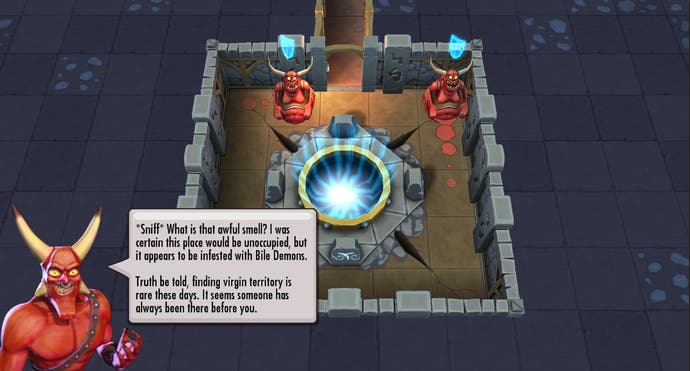
The big difference is that wherever there's a crack in the gameplay, EA has hammered in a wedge in the shape of a paywall. There are four currencies at play here, three of which are in-game - gold, rock and mana - and the inevitable gems which can be purchased with real money. Everything you do has an immediate cost counted in one of the first three currencies, and a countdown timer that can be swept away with the fourth.
Of course, of course, the economy is stacked in such a way that you're forever being steered towards the gems. Progress is impossible without upgrading your various rooms, and to do that you need gold or rock, your stockpiles of which have a finite ceiling that must be raised by upgrades. Upgrades which require gold or rock. By constantly ratcheting up the amounts required, the game creates an ingenious but ruthless domino effect. You need to level up your workshop, but to do that you need more rock than you can store, but upgrading your rock storage means saving up more gold than you can store, but upgrading that... and so it goes on. The head bone, in this case, is connected to the wallet.
To give an example of how crudely this system has been implemented, upgrading your Dungeon Heart - the core of your lair - to Level 3 requires only a few thousand rocks. Getting it to Level 4, the cost rockets to 50,000. The ripple effect of upgrades needed so that your dungeon can even hold that much rock is ludicrous. Scroll through the rooms and traps yet to be unlocked, and you'll see the price of items heading north of seven figures.
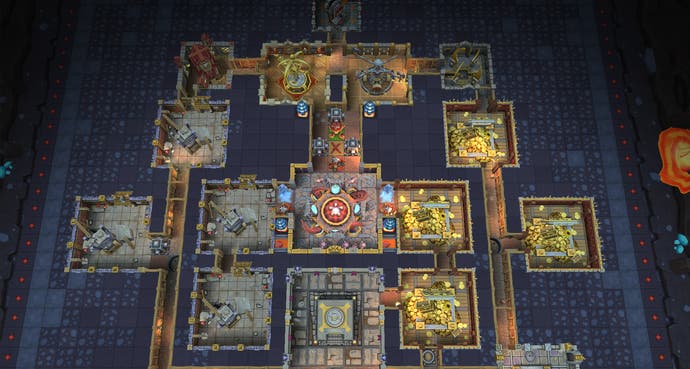
The game does ease you in, at least, adhering to the classic dealer's mantra that the first taste is free. You're started with an area of soft ground to dig your first rooms out of, and the imps carve through it with familiar ease. Fill that space, however, and you must start mining the outer edge of the map, made up of gem veins that take between four hours and a full day to excavate a single square. Making space for a basic 3x3 space suddenly becomes a task that can literally take all week. Meanwhile the amount of gems mined from each square can be counted on your fingers, while every gem transaction costs in the hundreds.
"What we have here is the shell of Bullfrog's pioneering strategy game, hollowed out and filled up with what is essentially a beat-for-beat clone of Clash of Clans."
But there I go, reviewing the free-to-play business model rather than Dungeon Keeper. It's hard not to, though, when that business model is the only thing holding the game up. The tragedy isn't that EA has crammed micro-transactions into a beloved game - though that certainly stings - but that it has done so in such a rote and predictable way.
Let's be clear, again, because it bears constant repetition: free-to-play is not automatically a bad thing. There are plenty of examples of great games - hardcore PC games - that use micro-transactions, and do so while building an engaged and devoted fanbase. League of Legends. World of Tanks. Team Fortress 2. There are clearly better templates to follow.
Yet what we have here is the shell of Bullfrog's pioneering strategy game, hollowed out and filled up with what is essentially a beat-for-beat clone of Clash of Clans. Every function, every mechanism, every online feature has been tried and tested already by Supercell's money machine and EA is following behind, drooling like a Pavlovian dog. That's what stings the most: not that Dungeon Keeper has gone free-to-play, but that it's done so in such soulless fashion.

The closest the game comes to its strategy roots is in the multiplayer aspects, which unlock once you've built a Training Room for your minion monsters. There are campaign levels that you can undertake by choice - both attacking AI dungeons and defending your own - but you'll also be open to invasion from other players. This would be great, if it weren't for the complete lack of consequence.
In the original game, defending your lair against enemies was literally life or death. If you failed, it was game over. There's no such thing as game over in free-to-play though, because when the game ends so too will the payments - so instead you'll find yourself opening the app to be told that someone attacked you. You may have lost some resources, which will be replaced in time, but whatever damage they did repairs itself instantly and you carry on with no real penalty. With such pitifully low stakes, and gameplay that values impatience over skill, there's only the most slender of gameplay threads to cling to.
It's always tempting to write this sort of free-to-play title off by saying it's not really a game, and in a lot of ways it isn't. But it's Dungeon Keeper, and every now and then you see enough of that game to feel nostalgic, before it vanishes again behind a 24-hour cool down timer.
Let's be generous. Those glimpses of the game Dungeon Keeper used to be are enough to earn one point. You can have the rest for 800 gems.



